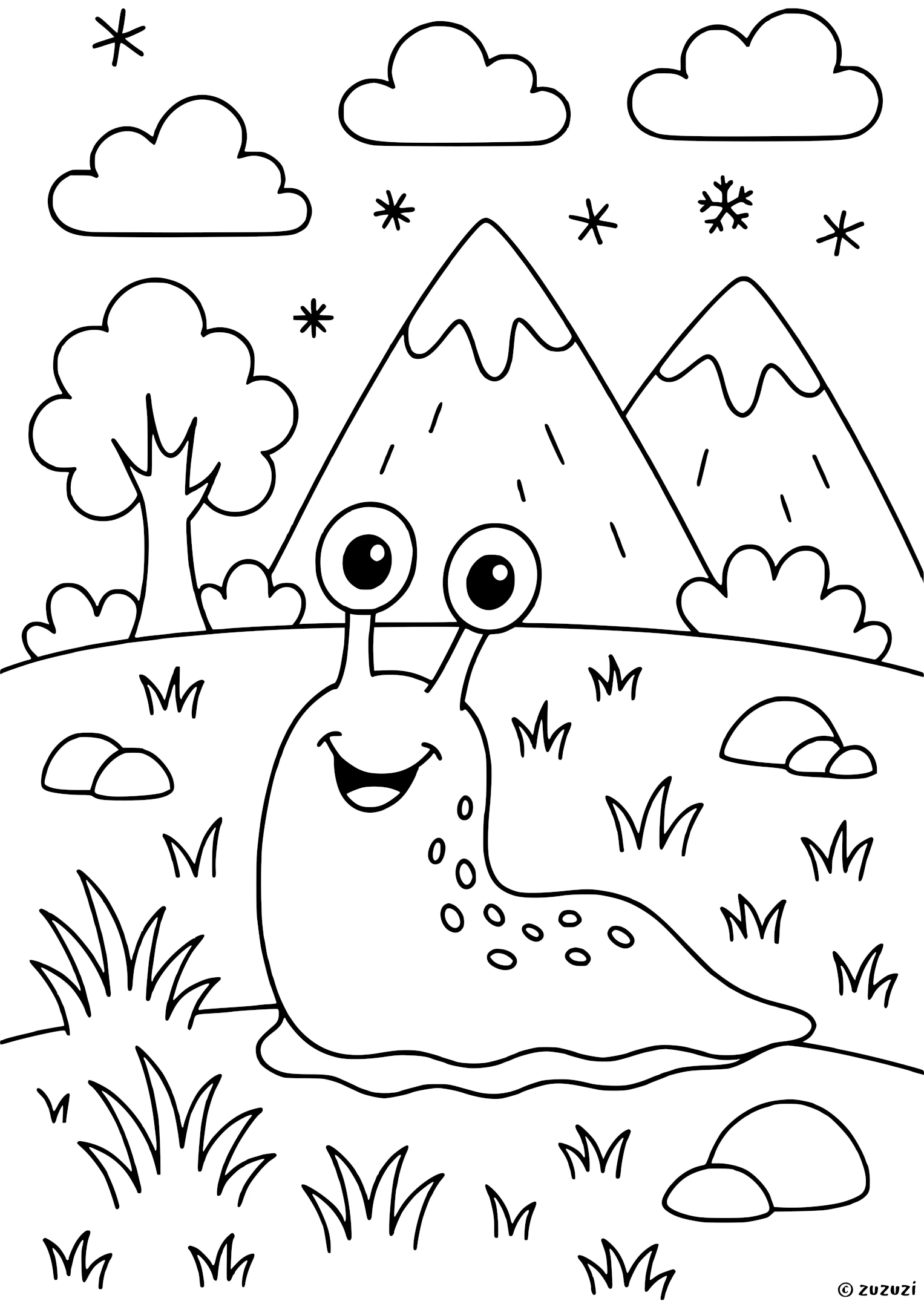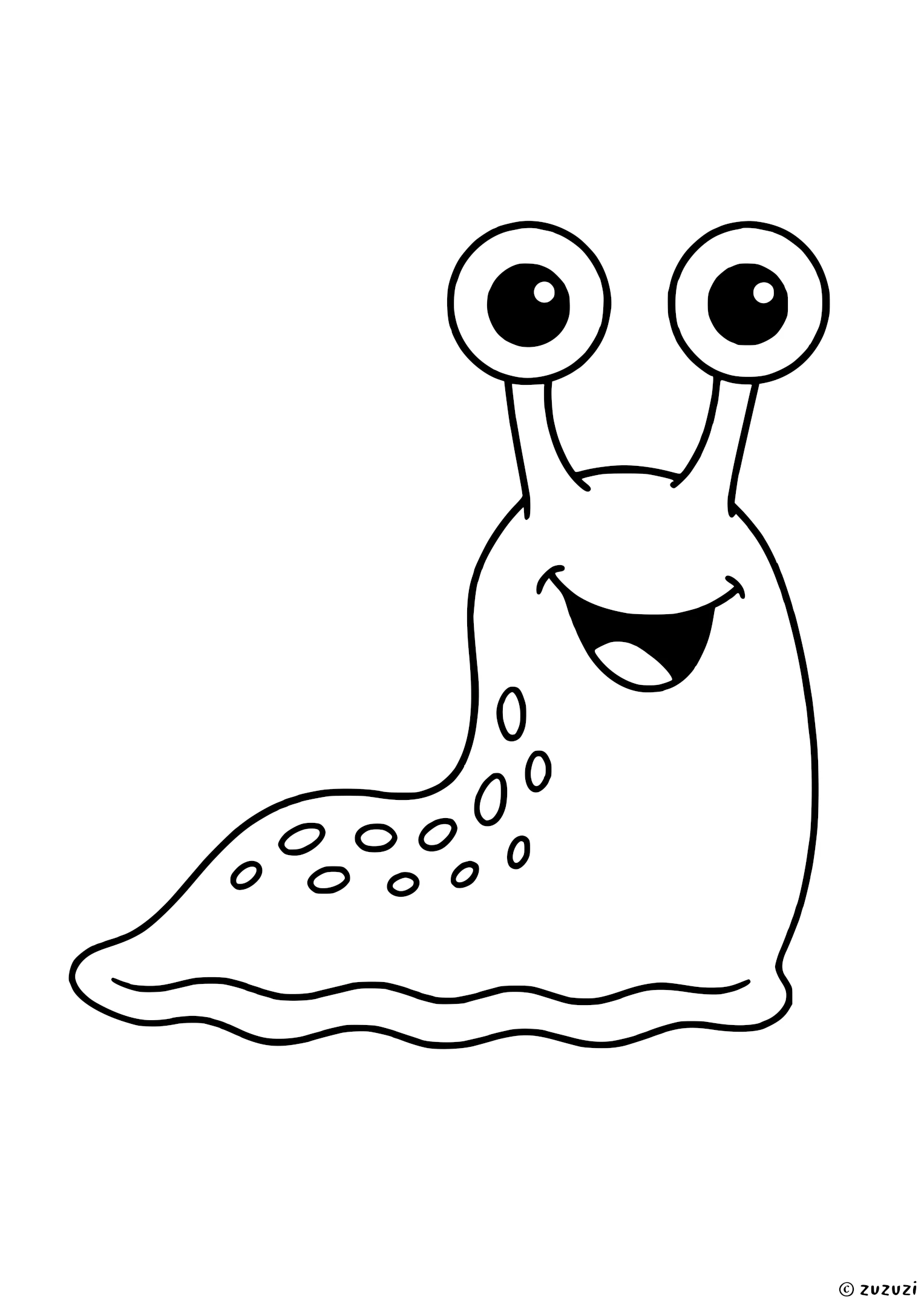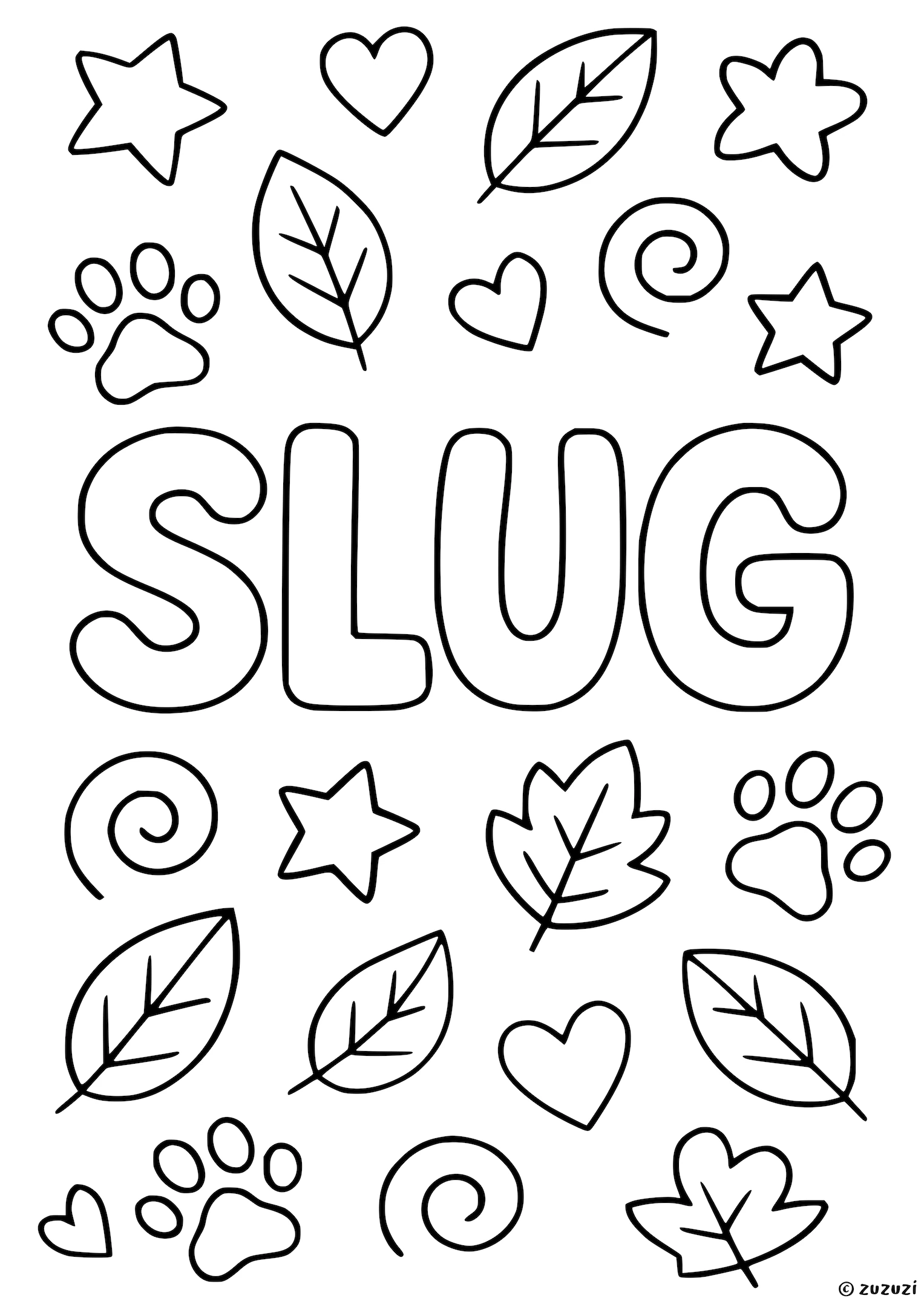Coloring ideas for Slug
Slugs come in all sorts of earthy colors like brown, gray, yellow, and even green. Some have little specks or stripes on their slimy skin, so try mixing different shades for fun effects. You can use soft greens or muddy browns for their bodies, and add a gentle shine with a touch of light blue or white to show their wet, slippery texture. Their tentacles can be colored darker or lighter for extra contrast, and don’t forget to decorate the background with leaves, soil, or little mushrooms to make them feel right at home.
On the back of the page, why not try writing some fun facts about the Slug, or its name in different languages? You could even give it a name of your own, or draw your own version using your imagination!
What is a Slug?
Slugs are soft-bodied, slimy creatures that belong to the same family as snails, but without a visible shell. They glide slowly across gardens and forests using a special layer of mucus that helps them move and keeps their bodies moist. Most slugs live only one to two years, although some can survive a bit longer in cool, damp environments. They are very light, usually weighing just a few grams, and their soft skin feels smooth and slippery. Slugs do not make loud noises, but they might produce gentle, squishy sounds as they move along surfaces. These creatures are often found in gardens, under leaves, or in moist soil where they feed on plants, fungi, and decaying material. Though gardeners sometimes consider them pests, slugs play an important role in nature by helping break down organic matter.
How to say Slug in different languages?
- English: Slug
- French: Limace
- Spanish: Babosa
- Arabic: بَزَّاقَة
- German: Nacktschnecke
- Chinese: 鼻涕虫
- Japanese: ナメクジ
- Korean: 민달팽이
- Portuguese: Lesma
- Italian: Lumaca senza guscio
- Hindi: घोंघा
- Russian: Слизень
- Turkish: Sümüklüböcek


